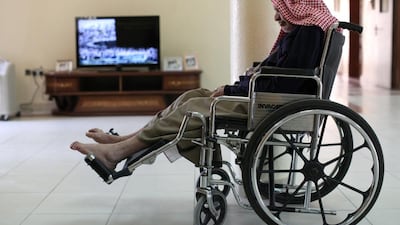As someone who often looks at social and cultural trends, a normal day’s work often includes reading reports about cultural and social changes. The strangest feeling, though, is reading a study and slowly discovering that you are the person being described.
That’s how I felt when I came across the term "sandwich generation", a moniker for people, typically in their thirties or forties, who care for both their elderly parents and young children.
My little ones are very little and my elderly parents are very elderly. Sometimes the children find themselves being shunted between school, doctors’ surgeries and hospitals. And my parents are often sitting in the car while I’m picking up the children from school. They all need to eat and the preferences of a three-year-old for fish fingers and chicken nuggets are wildly at odds with the tastes and nutritional needs of an octogenarian. And with time being so elusive while juggling multiple sets of needs with a demanding – if enjoyable – job, sometimes I feel like a magician. But mostly, I feel stretched beyond imagination.
The sandwich generation is a consequence of the fact that its members often come from extended families, with all the attendant medical and social needs. It is also a result of the fact that many families are having children later. The extra filling in the sandwich is that over the past few decades, an increasing number of women have taken up work outside the home and the structure of households, with all the responsibilities that entails, has changed. Yet the traditional burden of caring still falls mainly on women’s shoulders.
It was heartening to see recognition of that this week in the government announcement in the UAE calling for more women to take up roles in leading industries, such as the diplomatic service and judiciary. The package of measures includes psychological and actual support with caring for elderly relatives in the home – recognition that women can only take up those roles if there is a way to alleviate the other demands on their time.
In the UK, where I live, one in 10 working-age women are part of the sandwich generation and one in seven are in their early forties. This is sometimes down to the gender pay gap, depending on who is the main breadwinner in the house, and sometimes down to a larger portion of women working part-time. What often gets forgotten is that caring – whether for elderly parents or demanding toddlers – doesn't stop at 5pm. It happens round the clock.
This feeling of not being alone in the struggle and instead being one of a group of people, with its own identifier, has come as a welcome relief. I am not losing my mind. My precarious time management and wavering emotional strength is not down to me being weak or ineffective. It’s just that I’m in a situation which is impossible. I wonder how others who make up the millions in this growing segment feel with every hour of the day filled to the brim with activity, every minute meticulously accounted for.
It's the guilt at the inability to do the impossible that really causes pain and the fact that you’re stretched so thin, you might snap at any moment. Many people living far from their own elderly parents while trying to care for them, such as those who have chosen to move to the UAE, might feel similarly. The guilt never leaves you, wherever you are.
Then there is the challenge attending a burgeoning ageing population. As more people live for longer, conditions such as dementia are becoming increasingly prevalent and as we grapple with changing family structures, it becomes clear some of the care the elderly need can no longer be provided in the home.
___________________________
Read more from Shelina Janmohamed:
We need to take a long, hard look at why we're so obsessed with beauty
Jobs for the girls: why campaigning for a woman's work is never done
How artificial intelligence is showing gender bias too
___________________________
The pressures of being part of the sandwich generation are not just taking their toll now; they could also have a knock-on effect in the future for carers. A study published last month in Neurology magazine found that mid-life stress could play a role in dementia in later life, noting that those caring for children and ageing parents didn't perform as well as others in memory tests. The presence of high levels of the stress hormone cortisol also had an effect on other cognitive tasks as well as smaller brain volume.
The solutions, while entirely logical, are easier said than done. They include reducing stress and exercising. But when demands on time exceed supply, this is like asking for a chunk of the moon. The other answer is to build better societal infrastructure to care for the older and younger generations. This seems a wise step but one that requires good planning from a top-down level and which will take time to come to fruition.
The sandwich generation has, until now, been nameless and faceless, absorbing the concerns of others into a black hole. We need to shine a light on it and put solutions in place right now – otherwise those who follow us will be fighting an even bigger battle.
Shelina Janmohamed is the author of Love in a Headscarf and Generation M: Young Muslims Changing the World


